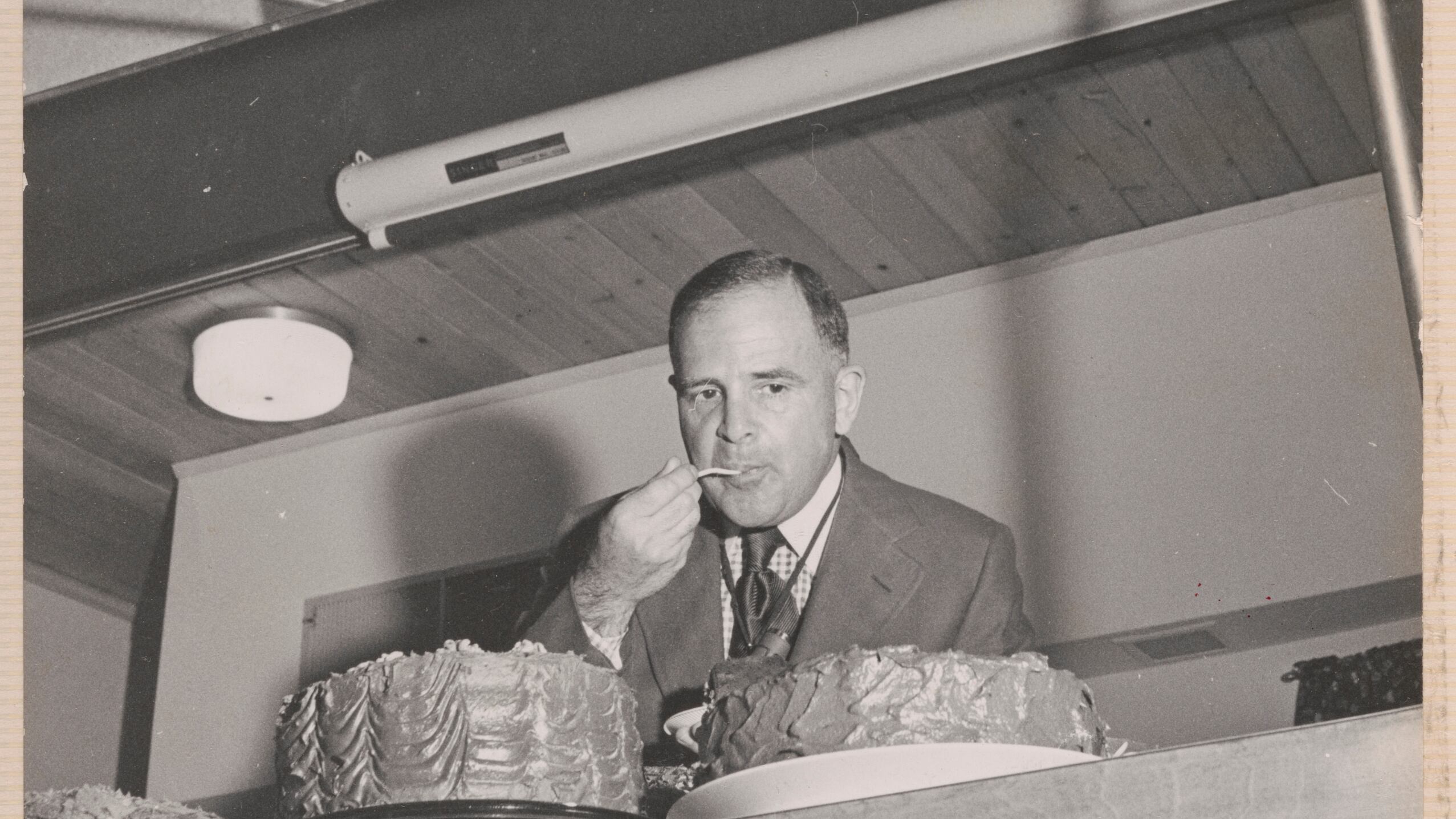Gerry Frank, a longtime chief of staff to the late Oregon governor and U.S. Sen. Mark Hatfield (R-Ore.), department store heir, philanthropist and sweets lover, died today at age 98. Elected officials across the state celebrated him as one of Oregon’s leading lights.
Frank went to work for Hatfield in the 1960s after the sale of Meier & Frank, the Portland department store chain his family founded, and where Frank worked until its purchase.
Frank grew up in Southwest Portland and attended Lincoln High School. (He recalled in 2010 that, as a young boy, he would ride his motor scooter to the corner store to buy ice cream—establishing a lifelong yen for desserts.) After graduating from Lincoln, he attended Stanford University prior to his military service in World War II and Cambridge University after leaving the Army.
He began working as an aide to then-Gov. Hatfield in 1966, and then continued in increasingly senior roles as Hatfield moved to the U.S. Senate, serving as Hatfield’s chief of staff until 1992.
Hatfield led Oregon Republicans when they were far more moderate than today. After Hatfield retired, Frank occupied a unique position as an unofficial adviser to leaders in both major parties. He possessed a Rolodex unmatched in Oregon politics.
Frank served as Oregon’s Honorary Oregon State Police Superintendent and chaired the Oregon State Police Foundation, and saw a Willamette riverfront amphitheater in Salem named in his honor in 2021.
He retired from politics in 1992, and launched into his next passion: food and travel writing, philanthropy, occasional political advising, and cake.
A longtime foodie, he wrote an ongoing guidebook to Oregon called “Gerry Frank’s Oregon.” (He also wrote a guidebook to New York City’s best food and shopping spots that remains a bestseller.) He opened an extravagant cake shop in Salem called “Gerry Frank’s Konditorei” in 1982 and judged the annual Oregon State Fair’s Gerry Frank Chocolate Layer Cake Contest, which ran for over 60 years.
He wrote a travel column for The Oregonian, focusing on the state’s food and sweets offerings, like where to get the juiciest burger in Portland, and where to find the best fudge and hard candies to avoid looting your child’s Halloween haul.
At age 70, he swam every day at 5 am at the local Salem pool. He described to an Oregonian reporter in 1993 what the remainder of a typical day looked like: “By 7:30 am I’m at the post office for the mail. I will have half a dozen appointments in my office, where I have two full-time and one part-time assistants. I read eight papers a day—national and international. Maybe I have a business lunch. At night I have one or two commitments, civic or social.”
In 2000, then-Gov. John Kitzhaber anointed him with the “Oregon’s Premier Citizen” award.
Frank often wore colorful quarter-zip sweaters and cardigans in his later years, breaking the mold of a stiff, retired bureaucrat.
Former state Sen. Betsy Johnson (D-Scappoose), whom Frank recently endorsed for governor, called Frank an Oregon “icon” in a statement: “Today, politicians talk about working both sides of the political aisle. Gerry never had to work at it. He came by it naturally. He understood that everybody wants to be seen and heard.”
Gov. Kate Brown also paid tribute to Frank today.
“It is hard to overstate Gerry Frank’s contributions, through decades of service, to our community in Salem and to the state of Oregon,” Brown said in a statement. “He also advised countless governors throughout the years, myself included. I am lucky to have called Gerry a trusted counselor and friend.”
Frank lived in Salem up until his death.
